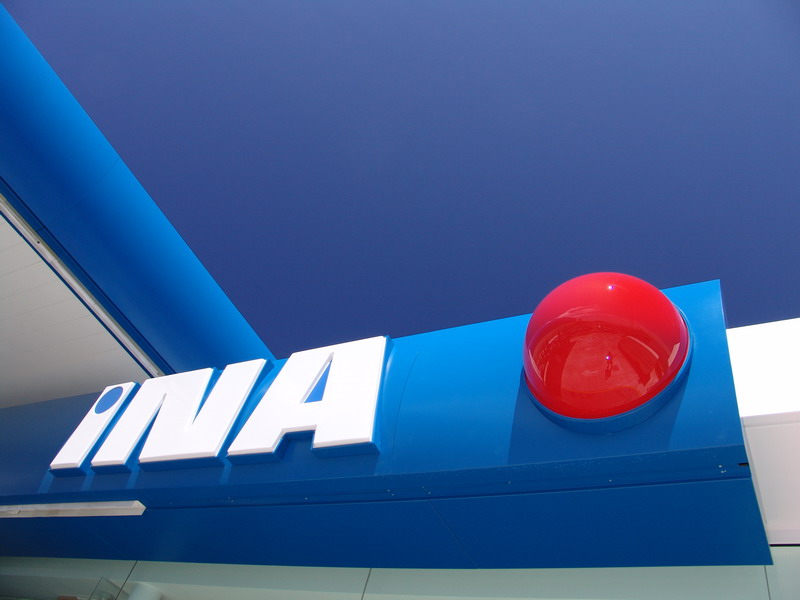
Croatian Government Seeks to Change Agreement with Hungarian MOL Under Duress
Publication: Eurasia Daily Monitor Volume: 10 Issue: 205
By:

The Croatian government and the Hungarian MOL oil and gas group have entered into negotiations over the future of INA, the main oil and gas company in Croatia and the largest business entity in the country. MOL (itself Hungary’s largest business group, 25 percent state-owned) holds 49.1 percent of INA’s shares, making it the biggest foreign investor in Croatia. This is also MOL’s biggest investment commitment abroad. MOL, furthermore, holds dominant management prerogatives in INA. The Croatian government, however, holding 44.8 percent of INA’s shares, seeks to change the status quo (HINA, MTI, November 8; Poslovni Dnevnik, Jutarnji List, November 14).
Negotiations are ongoing against a backdrop of extra-economic pressures and intimidation, applied by elements in the Croatian government on the Hungarian company. There is continuity in this regard between the immediately preceding government of the conservative Croatian Democratic Union and the current, Social-Democrat-led coalition government in office since December 2011. Both governments have sought to regain “national” control over INA from the foreign investor. They have made it increasingly harder for MOL to operate in the country, regardless of MOL having turned INA from an insolvent relic of Yugoslav socialism into a healthy enterprise. Modern management was a key to that turnaround. According to the Hungarian government, MOL has invested nearly €3 billion ($4 billion) in INA (MTI, October 2).
MOL acquired its ownership shares in INA in two stages: in 2003 and 2008–2009. At that point, it rescued INA from de facto insolvency by providing inter-company loans and crude oil supplies. Under the 2009 shareholder agreement, MOL holds wide-ranging management rights, although the Croatian government retains veto rights on INA’s strategic decisions. The Croatian government also secured the right of first refusal (pre-emptive right) to buy back INA shares from another shareholder, if the latter puts them up for sale; but the pre-emption is admittedly moot in Croatia’s current fiscal situation. The government, however, is pressing to change the shareholder agreement and regain managerial control over INA.
Under the natural gas agreement (accompanying the shareholder agreement), the Croatian government is obligated to separate the natural gas-trading company, Prirodni Plin, from INA, and keep Prirodni Plin in state ownership. The government (former and current) either subsidizes or imposes below-market prices on natural gas supplies for certain categories of consumers. Rather than doing this at its own expense, the state does this at INA’s expense, and therefore partly at MOL’s expense, by refusing to separate and take over the natural gas business from the jointly owned INA.
Under the agreement (see above), the Croatian government had to take over Prirodni Plin already in 2009; then it obtained an extension until December 2010. But the situation persists, forcing MOL every year to absorb losses. The Hungarian company is now taking legal action to enforce that separation of the natural gas business. MOL takes the position that it could agree to keep the natural gas–trading company as part of INA, if the Croatian government would allow it to charge market prices for natural gas supplies to consumers. Either way, MOL seeks compensation for losses incurred on this account since 2009. Under that agreement, the Croatian government’s pre-emptive right of share buy-back (see above) is conditional on the government’s takeover of the gas-trader Prirodni Plin from INA (www.TPortal.hr, September 14; Magyar Hirlap, November 12; Poslovni Dnevnik, November 14).
MOL undertook commitments to invest in modernization of INA’s Rijeka and Sisak oil refineries (on the Adriatic coast and near Zagreb, respectively). MOL had successfully upgraded its own refineries in Hungary and Slovakia; but INA itself had not been able to start modernizing its obsolete refineries until MOL’s arrival in Croatia. Thus, Croatia lost precious years; and more years were lost with the crisis that hit Europe’s oil refining industry from 2009 onward. MOL itself had to close down its oil refinery in Mantua, Italy, recently. Meanwhile, MOL has minimized the Rijeka refinery’s losses and completed the first phase of its modernization, with the second phase due for completion in 2017. But, according to MOL, the Sisak refinery is deemed too old and too small to compete in current market conditions. For its part, the Croatian government blames this situation on MOL. In its “Framework for Negotiations with MOL,” the government cites this as a rationale for changing the INA shareholder agreement to regain managerial power for the state (Jutarnji List, November 11; Business.Hr, November 13).
The Croatian government’s other rationale, which has caught more public attention, is a legal case against MOL’s president and CEO, Zsolt Hernadi, connecting this with the case of Ivo Sanader, former prime minister of Croatia in 2003–2009. In 2012, Sanader was sentenced to ten years in prison by a Croatian court of first instance in two corruption cases, one of them based on the testimony of a businessman who was himself under multiple indictments at that time. He claimed that MOL’s chief had bribed Sanader into approving the 2009 INA shareholder agreement. Sanader denies this and has appealed the verdict to the court of the next higher instance. The Croatian government at that time had approved that agreement collectively. But the current Croatian government has issued an arrest warrant against Hernadi, followed by an international warrant in October, escalating the situation beyond the level of a business dispute among shareholders in a joint company. This move is casting a shadow over the negotiations that have started.




